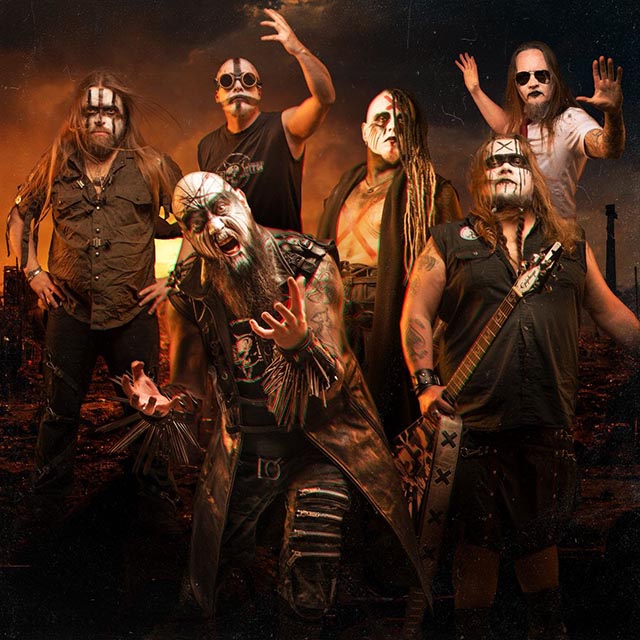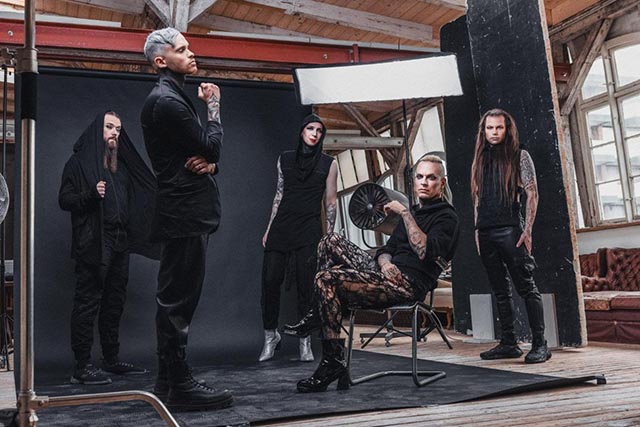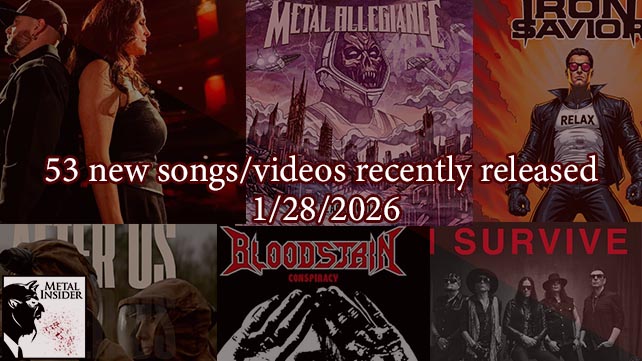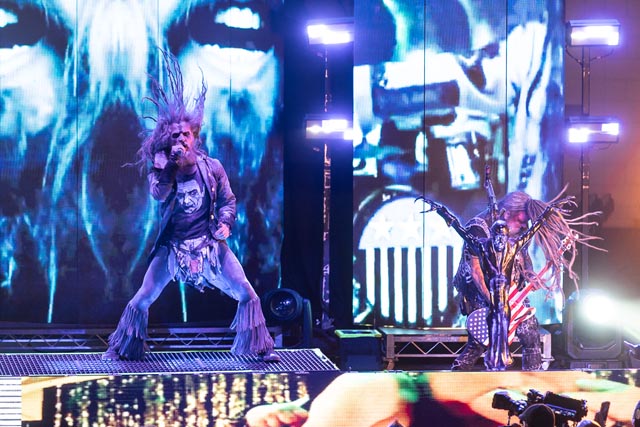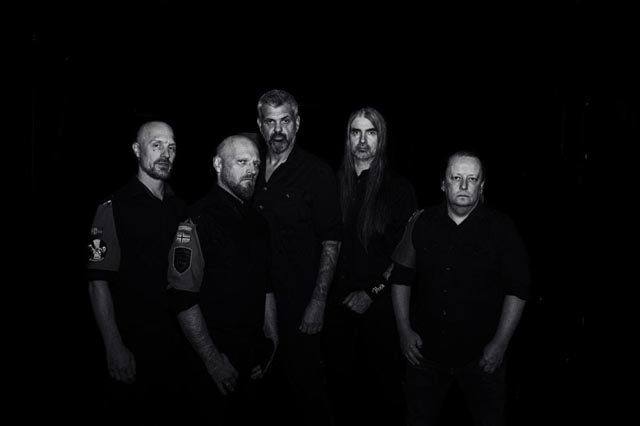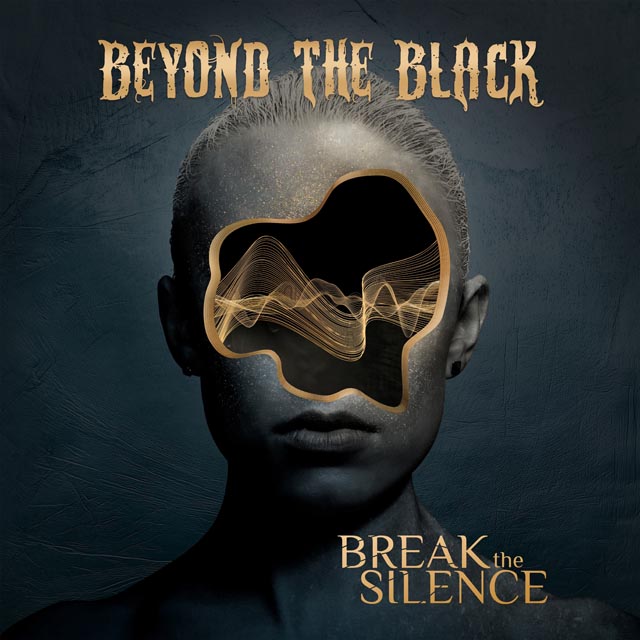Lord of the Lost vocalist Chris Harms is celebrating the arrival of his debut solo album, 1980, available now via Napalm Records. The record separates him from Lord of the Lost, focusing on an 80s-inspired synth-pop atmosphere. Metal Insider’s Mar Morannon spoke with Harms to discuss the album.
Mar: Hello! I’m Mar from Metal Insider, thanks for taking the time to talk to me today!
Chris: Good, nice to be here! Yeah, it’s so funny to do…this is, like, the 10th interview today…and it’s all metal press. And this is so funny, actually releasing this record on Napalm Records and I think it’s their first ever record without any guitars on it. Because it’s not rock or metal at all, just pure synth pop. I love it, it’s so funny! And it’s been so well received, even without guitars, it’s funny.
Mar: Yeah, yeah, that’s something I’ve noticed in the last few years, there’s been a really big uptick in metalheads listening to things like goth and synthwave and industrial and things like that, which is really interesting.
Chris: Yeah, it is. It is. I mean, like, I could have released it somewhere else, but the thing is I really wanted to have everything in the same team. Because if I would have gone to a different label, then there would be automatically, like, competition. And I don’t want to be in competition with myself. I wanted to do this whole thing and have it be fun and easy, you know? I did it more for me as a hobby, and to be able to release it – that’s a cherry on top, so I didn’t want any stress with it.
Mar: So yeah, yeah, I was actually curious about that. So Lord of the Lost originally started as a solo project and then you built it up into a band to play shows. So what made now feel like the right time to circle back and make a solo album?
Chris: The thing is, it wasn’t really about doing it solo, and actually, in the studio, I didn’t do everything myself. I co-produced it with one of these synth nerd, synth geek guys, who actually works with us for Lord of the Lost for 15 years as well. And everybody, the whole team, it’s basically the same people who do Lord of the Lost in the background, because Lord of the Lost is a big team of not just the people on stage, we’re like, a tightly knitted crew of close friends for so many years, it’s more than just a band.
So, it was not really about going solo, like, I need to do this just for myself and on my own, you know? It was more like, I want to do a record with just this kind of music without guitars, purely synthetic, very much 80s, and really just use synthesizers, keyboards and samples and sample libraries from the 80s, nothing else was allowed. So it was very nerdy, very geeky. It was more about that.
Also, this is something I wanted to do things easy and quick. So if I would have gone to look for two or three people to go together with, all of that takes time. I had the idea to do this last summer on summer holiday. I thought, “okay, it’s June. I need to be done by September with all of the songwriting and everything.” So the quickest way is to actually do that alone. And I have thought about it for 10 years, and there’s no one in my circle of friends who shares this dream with me, so it didn’t make sense to reach out to people and form a new band. And also, if you form a new band, there comes responsibility. Then the people in the band might expect from you to keep on going with that for so long. And the easiest thing is I just release it under my name, and with my name, I can pretty much release everything, every kind of music, it doesn’t have to be bound to just one genre. So that was just the easiest way.
Mar: Okay, yeah, that makes a lot of sense. Was there anything that kind of surprised you about putting together an album in that kind of solo process where you knew you had other people working with you, but you’re the sole creative influence. So there’s not so much, like, balancing of expectations with the rest of the band. Were there any unique challenges or surprises that came with that?
Chris: No. No, not at all. The thing is, I am a music producer and songwriter for many artists for like 20 years. So doing this is my daily business. Early in the morning, I go to the studio or some other workplace or whatever with a computer and lots of gear, and I start working on stuff. Either it’s production for someone else, sometimes it’s just boring stuff like editing. Sometimes I have to record people, or I write songs for someone, with someone. So that’s like my daily business and the genres, the musical styles I’m working on are so versatile.
So it didn’t really make a difference to do this for my solo record or something else for someone else. The only thing here is, of course, I was much more involved emotionally. But actually, it was much easier than anything else, because when you do something solo, you don’t have to ask anyone like, “do you like that? Is that okay? Are you fine with that?” You know, it’s like, it was actually very, very easy.
The only thing that surprised me was how fast the songwriting process was going. I decided to do this in June, and we were done by September with, like, everything. And it had to be that way, you know, otherwise I wouldn’t have made it. But I was surprised by how fast it went, and this kind of showed how many years I had actually wanted to do this. I think I talked about this record 10 years ago in some interview, but I never really had time to do it. But it’s like children, you know, when when people want to have children, they always wait for the perfect moment. There is no perfect moment, there’s always something in the way. You either want children or not. And it’s like, hey, I can’t wait for the perfect moment, I just do it right now.
Mar: Yeah. What, what led you to want to create an album like this, that is purely synthesizers and electronic music without guitars? I know a lot of your past bands, like Lord of the Lost, you had an 80s hair metal band, stuff like that, which is all very guitar heavy. So was this a big shift for the creative process?
Chris: I also had electronic bands in the past, so that’s not new to me. The only thing is I said, “when I do this, it needs to be very much different from Lord of the Lost.” Because if you would take “1980” and put guitars on top of that, then it would be so much closer to Lord of the Lost instantly. And the thing is, with my voice, I might not be the best singer, but I never really heard someone really 100% sounding like me. So you listen to me and you kind of instantly realize, okay, that’s this guy. So this already brings Lord of the Lost and the solo record very much close together. And if I would have put guitars in there, it would be even closer. So I needed to find a way to make it different.
I mean, the use of guitars is obvious, and it would have worked very well, I love it, it’s so much fun. But it would have been too close. So I needed to find a way and this was the obvious way. And it gives me an extra challenge, because you have to create stuff differently. When you go like, “okay, I want this part to be bigger and more epic,” you can’t do the obvious thing, like, just put some heavy guitars in it and then suddenly it’s this wall of sound. You have to work with different things. It’s the same like what I said about the gear, limiting yourself to a certain kind of gear. For instance, you go to the supermarket and you say, like, “you can only pick five things from this row and you have to create dinner from that.” This limitation of ingredients forces you to be creative to come up with something cool. And this is what I did for that record, you know, like I just said, with only sounds and synthesizer samples from that era from 1980 to 1989, or simulations of it. And that’s it. Even in the mix down, you know, the reverb rooms that you hear, it’s all emulations or real stuff from the 80s. And that was fun, but I had to kind of find an obvious difference to Lord of the Lost, because Lord of the Lost already is pretty synth heavy and my voice makes it sound kind of similar, you know.

Mar: Yeah, that definitely makes sense. On that note of the production techniques, I grew up listening to a lot of goth and industrial, and I noticed there are some clear nods to industrial music, especially in the intros to Madonna and Parallax. And industrial is really known for creating transgressive and kind of aggressive soundscapes. And I was wondering, did you experiment with any unique production techniques or sounds that were new or unexpected for you? Or was it all calling on stuff that you’ve experimented with before?
Chris: The thing is, the process of songwriting and sound design kind of intertwines with this kind of music. The typical thing for me is I sit down and I just write a song in my head until it’s done. Or, when I don’t get any further, I pick an acoustic guitar or a piano, and try some things so I can keep on working on that. In this case, sometimes you sit down on a synthesizer, find a nice preset, and it goes like, “brwwooowww” and you’re like, okay….cool! And you start to listen, you hear something else in your head. So there was actually, it was a different kind of process.
But talking about industrial sounds and this kind of sequences, which are actually a little too hard for real eighties music, I actually had to be very careful with that because I could have easily done it way more EBM, way more industrial because it was the obvious thing to do, and I’m used to this kind of music, and I love this kind of music. And, you know, I have so many friends in let’s say a band like Combichrist or Aesthetic Perfection or whatever. They all do this perfectly. And it’s so easy for me because I’m so close to that kind of music to go more industrial, to go for more distortion and these kind of things. But I wanted to try to keep it in the eighties as much as possible.
So sometimes it was too industrial; I had to circle back a bit and ask myself, like, “how would they have done that in the eighties?” But it was nice to keep, let’s say, a little taste of that in it, but not go too industrial. Because as much as I like this kind of music, I think there’s just too many bands out there which sound all the same. And I really wanted to try to go very much vintage eighties, and, I think I kind of succeeded, and it was a lot of fun.
Mar: Oh, I think it’s very eighties. While you were trying to stay in that eighties realm, did you revisit any specific albums or movies or trends from the eighties while working to kind of get you in that headspace?
Chris: No. I didn’t have to because it’s it’s something I love to listen to a lot, especially in the last 10 years. I was born in 1980, hence the album title, but when I grew up as a kid, I listened to the vinyl collection of my parents. There was sixties and seventies music, so I didn’t listen to eighties. Of course, sometimes it was on the radio or whatever, but it’s like, you know, it wasn’t the regular thing I listened to. So I really realized how great all this drum machine music from the eighties was, like 15 years ago or something.
Then I really started listening, before that I didn’t even like Depeche Mode, except for like 2 or 3 hit singles, you know? And then I really had to dive into it and during the last 10 years, all I listened to was so much of these synth pop, synth wave, new wave, very much eighties based playlists. So I really didn’t have to go back and revisit that.
And I’m so used to VHS. I still have, like, all these Rocky and Terminator things on VHS, and I love them. So this is a kind of aesthetic which got to be so close to me during the last 10 years that it’s there naturally. I didn’t have to go back and, like, do my research. You know? That’s like an actor who tries to find the right mood for his role. I didn’t have to, that’s that’s part of me.
Mar: You had a couple of features, but more from artists in the nineties -wave scene, If you could have collaborated with any artist from the eighties on this album, who would it have been?
Chris: I don’t know if she was popular in the US, but there’s this eighties singer, she’s still active, called Sandra. She had big hits like Maria Magdalena and, things like that in the eighties, which were, like, super huge hits in Europe.
I actually tried to get her as a guest singer on this record, but it was hard to contact her, and then she didn’t have time. And so, I will definitely do a second record, and I will try to get her for the record, but she’s an old lady now, so who knows? But, the thing is when I remember the eighties, 1 year after Michael Jackson’s “Bad” came out, it was 1988, I was in my room with, like, speakers made of card box with that my father did and with some old microphones from his tape machine, and I was singing and dancing there in that room. So if it would be possible, I would have tried to collaborate with Michael Jackson. But for many obvious reasons, it doesn’t work. [laughs] But I think this this would have been great.
Mar: Oh, that would be fun! Looking back, what’s one thing you learned about yourself as an artist while creating this album?
Chris: Oh, that’s a very good question because mostly, you reflect on these things after a little more time. I mean, this record was done in late September. I think what what I realized is that I still enjoy, like, creating music just as a hobby. Because when you create something which no one knows about, no one waits for you, no one expects this from you, you don’t have any contract where you have to do something. You actually just do this for yourself.
And, I mean, also with Lord of the Lost, all the decisions that we take, we never decide something because this could give us more money or people might like this more. We never do that. We always decide things by heart and by, like, as we would decide them as a hobby. But still, at the same time, it’s our main job, and so we have deadlines, and we have all these kind of responsibilities. And for this album, actually, for a couple of months, it was just my hobby, so I realized, okay, I can still do that. I can still just do music as a hobby, and it’s still the greatest thing to me. AndI think this was actually nice to reassure myself that, I’m doing all of this because I was born that way – I was made to do that. You know? And it’s not just my job being a musician or music producer. It’s still something I would just naturally do, and I like that a lot.
After, you know, I turned 45 yesterday, and I still feel like I just wrote my first song, and it’s so exciting because I opened a door to a world which is infinite and so interesting. That the fire is still burning brighter than before.
Mar: Happy birthday!
Chris: Thank you.
Mar: Well, we’re running out of time, so thank you so much for sharing all your thoughts and insights, on your process of creating “1980.” It’s been great to have you! Before we wrap up, is there anything else you’d like to share with your fans or any of our readers?
Chris: Yes, actually! In exactly 12 minutes, I have a call with our US/American booking agency to talk about a US tour for Lord of the Lost in 2026. So, maybe that’s interesting to some people.
Mar: Yeah. That’s very interesting!
Chris: Yeah. We’re not gonna come this year because the whole visa process just takes a lot of time, 6 to 12 months and we really don’t have the time to go into that right now. So, we’re trying to come back in early 2026.
Mar: Awesome, I hope it works out!
Chris: Yeah, me too!
Mar: Thanks again for joining me, and best of luck with the release next week. Have a good day!
Chris: Thanks, you too! Bye!
1980 out February 07, 2025
Links:
Napalm Store
Bandcamp
I Love You music video
She Called Me Diaval music video
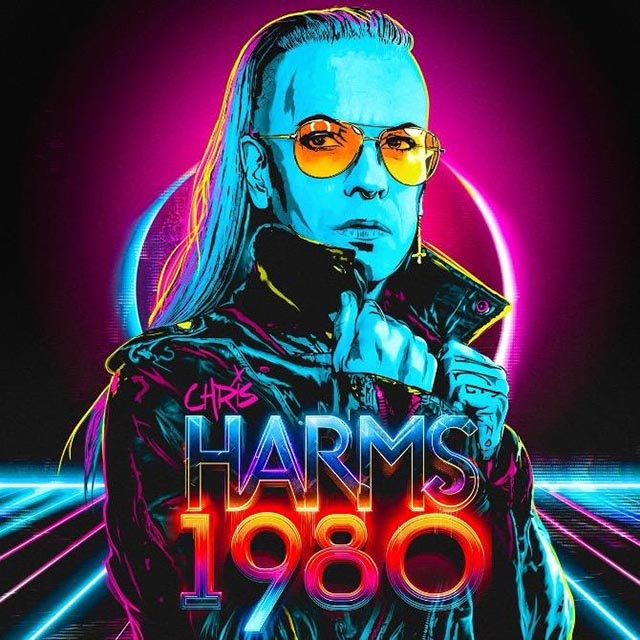
Feature Image Photo Credit: Lennard Schmitt


